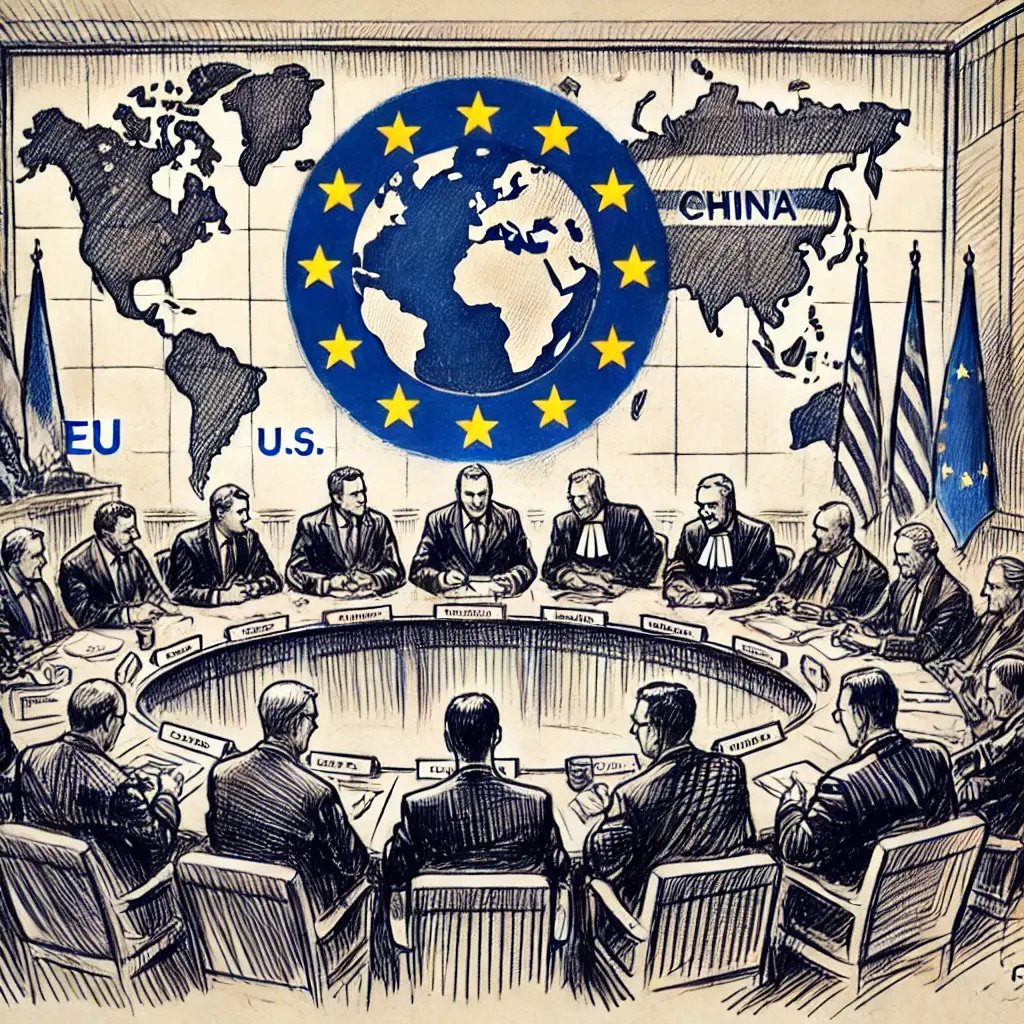
Intensification of Fiscal Control: Justice or Obstacle to Entrepreneurship?

The Tax Agency is taking a turn in its inspection methods, focusing very especially on those taxpayers with high standards of living that do not correspond to their declared income and assets. This strategy, which aims to combat tax evasion and fraud, has generated an intense debate about its impact on the business environment and tax planning. In this article, we analyze these measures, their implications, and how they can affect both individuals and companies in depth.
Context and Objectives of the New Fiscal Strategy
According to a recent article in El País, the Tax Agency has announced the strengthening of its control mechanisms, with special emphasis on the identification of individuals who enjoy a high standard of living but whose declared income and assets are considerably lower. The intention is to attack cases in which abusive corporate structures are used to divert personal expenses, simulate leases, or conceal income through fictitious loans.
Main objectives:
- Early detection: Identify discrepancies between the observed lifestyle and the tax data presented.
- Use of technology: Implement systems based on artificial intelligence to expedite detection and anticipate taxpayer assistance requests.
- Control in vulnerable sectors: Review areas with a high risk of shadow economy, such as e-commerce, POS terminals, and tourist rentals.
This strategy is part of a broader policy to combat tax fraud, which seeks to recover lost revenue and ensure that each citizen's contribution is in line with their real economic capacity.
Analysis of Control Measures and Tools
- Examination of Corporate Structures and Abusive Expenses
One of the most prominent tactics consists of analyzing the corporate structures used by high-income taxpayers. Frequently, these structures are used to register personal expenses as if they were deductible within a business activity. The method detects, for example:
- Misuse of instrumental companies: Where leases are simulated or fictitious loans are made to conceal income.
- Unjustified tax benefits: The deduction of personal expenses that should be taxed individually.
These practices, although they may seem like simple tax optimization, cross the line when used to evade taxes systematically. The Tax Agency intends to reverse this situation by attributing these expenses directly to the individual, which would imply a higher level of taxation and, therefore, greater fiscal equity.
- Incorporation of Technological Tools
The implementation of artificial intelligence and data analysis is another fundamental piece of this new plan. By using advanced systems, the Tax Agency can:
- Analyze large volumes of information: Detecting behavioral patterns that indicate evasion or fraud.
- Anticipate the demand for assistance: Adjusting its resources and offering personalized attention to correct errors in the declaration.
- Optimize inspections: Focusing audits on cases with the strongest indications of irregularities.
This digital transformation not only improves the efficiency of the tax administration but also sets a precedent on how technology can be an ally in the fight against fraud, although it raises questions about privacy and the handling of personal data.
- Impact on Risk Sectors
Intensified control is especially aimed at sectors where historically higher risks of the shadow economy have been identified, such as:
- E-commerce: Digital platforms, by their nature, can facilitate the registration of fictitious transactions or the concealment of income.
- Tourist rentals and POS terminals: Areas in which cash flow and cash transactions complicate the tracking and verification of declared information.
The analysis in these sectors is carried out in parallel with measures to improve administrative simplification, such as the second phase of language simplification in official documents. This aims not only to reinforce control but also to encourage voluntary compliance, reducing errors and facilitating the correction of possible discrepancies.
Implications for EmpresAegis and the Business World
Reflection on Fiscal Planning
For companies and tax advisors, these measures represent a significant change in the regulatory environment. The intensification of control could imply:
- Review of tax strategies: Companies and individuals must carefully evaluate whether their optimization structures comply with legal limits and do not approach abusive practices.
- Increased administrative burden: The intensive use of technology by the Treasury could translate into a greater demand for documentation and evidence to justify deductible expenses.
- Impact on competitiveness: Increased tax pressure may have deterrent effects for certain types of investment or international planning, forcing the search for alternatives that fit the new control framework.
Debate on Equity and Fiscal Justice
The debate focuses on two main axes: the need to combat evasion and the risk of overburdening taxpayers who, although they optimize fiscally, do not engage in fraud. Key questions include:
- To what extent can the intensification of control be considered a fair measure?
- Is it guaranteed that the measure only impacts those who really abuse the system, or could it affect legitimate taxpayers who use complex but legal tax strategies?
- The balance between efficiency and privacy: The implementation of artificial intelligence and massive data analysis raises questions about the protection of personal information. How is it ensured that the use of these technologies respects the rights of taxpayers?
- Implications for entrepreneurship: The new measures may influence the perception of the business climate in Spain. On the one hand, greater control could encourage transparency; on the other, it could discourage investors and entrepreneurs who fear excessively intrusive fiscalization.
Towards an Open Debate: Challenges and Opportunities
The Role of the Tax Agency in the Modern Economy
The strategy of intensifying fiscal control is a reflection of the digital transformation and the growing need for transparency in the global economy. However, it is crucial to debate whether these measures are an effective mechanism to increase collection and guarantee equity, or if, on the contrary, they may generate a counterproductive effect, disincentivizing investment and business activity.
Perspectives for Future Fiscal Reforms
The debate should also focus on how tax policies should evolve in the context of the digital economy. Some issues to consider are:
- Adaptability of regulations: Is the current legislation flexible enough to adapt to new technological realities and changing business structures?
- International cooperation: The fight against tax evasion requires a coordinated effort at a global level. How can tax authorities work together to avoid the use of tax havens and opaque structures?
- Promotion of voluntary compliance: What measures could be implemented to encourage greater compliance without resorting to coercion, to foster an environment of trust and transparency between the Administration and the taxpayer?
The Impact on Spain's Image as an Investment Destination
For foreign companies and large fortunes, the perception of a predictable and fair tax environment is fundamental. The intensification of control, if managed adequately, can consolidate Spain's image as a country committed to fiscal justice and transparency. However, if it is perceived as an excessive burden, it could trigger capital flight or deter new investments.
Conclusions and Questions for Debate
The new control strategy of the Tax Agency, focused on those taxpayers whose lifestyles do not match their tax returns, opens a fundamental debate on the balance between the fight against tax evasion and the promotion of a healthy business environment. EmpresAegis, in its role as advisor and manager in matters of international taxation and entrepreneurship, faces the challenge of advising its clients in a context where tax planning must be increasingly transparent and in accordance with economic reality.
Questions for reflection and debate:
- Is the intensification of fiscal control an effective tool to combat evasion without discouraging investment?
- How should tax planning strategies be adjusted in an environment where the use of artificial intelligence and big data is becoming the norm?
- What are the ethical and legal limits that must be respected to prevent the fight against tax fraud from becoming an obstacle to entrepreneurship?
- Should the State favor measures that encourage voluntary compliance instead of increasingly coercive fiscalization?
- What role do bonuses and exemptions play in the perception of fiscal equity, and how could they be reformed to avoid the loss of revenue without penalizing legitimate taxpayers?
The answer to these questions is not only relevant for high-income taxpayers but also for the entire business fabric, since a reform in the fiscal control policy can have direct consequences on competitiveness and the business environment. In this scenario, it is vital that both policymakers and tax advisors maintain an open and constructive dialogue to balance efficiency in collection with the promotion of a dynamic and fair economic environment.
EmpresAegis invites its readers to share their opinions and experiences on this topic in the comments. Do you think these measures will boost fiscal justice or represent a risk for business activity? What changes would you consider necessary to balance both objectives?

